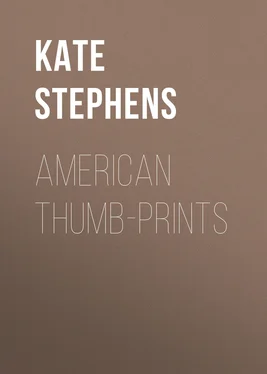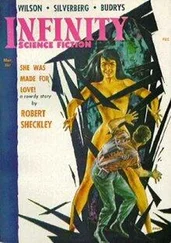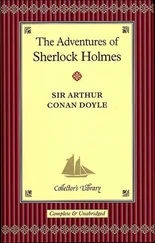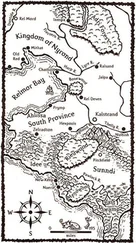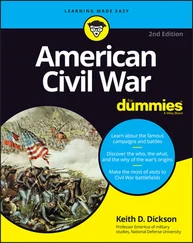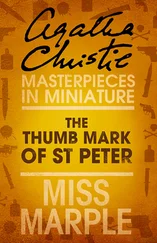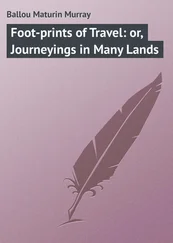Kate Stephens - American Thumb-prints
Здесь есть возможность читать онлайн «Kate Stephens - American Thumb-prints» — ознакомительный отрывок электронной книги совершенно бесплатно, а после прочтения отрывка купить полную версию. В некоторых случаях можно слушать аудио, скачать через торрент в формате fb2 и присутствует краткое содержание. Жанр: foreign_prose, foreign_antique, на английском языке. Описание произведения, (предисловие) а так же отзывы посетителей доступны на портале библиотеки ЛибКат.
- Название:American Thumb-prints
- Автор:
- Жанр:
- Год:неизвестен
- ISBN:нет данных
- Рейтинг книги:3 / 5. Голосов: 1
-
Избранное:Добавить в избранное
- Отзывы:
-
Ваша оценка:
- 60
- 1
- 2
- 3
- 4
- 5
American Thumb-prints: краткое содержание, описание и аннотация
Предлагаем к чтению аннотацию, описание, краткое содержание или предисловие (зависит от того, что написал сам автор книги «American Thumb-prints»). Если вы не нашли необходимую информацию о книге — напишите в комментариях, мы постараемся отыскать её.
American Thumb-prints — читать онлайн ознакомительный отрывок
Ниже представлен текст книги, разбитый по страницам. Система сохранения места последней прочитанной страницы, позволяет с удобством читать онлайн бесплатно книгу «American Thumb-prints», без необходимости каждый раз заново искать на чём Вы остановились. Поставьте закладку, и сможете в любой момент перейти на страницу, на которой закончили чтение.
Интервал:
Закладка:
But from whatever part of the State the students come to their University, he and she commonly come—they are not sent. The distinction is trite, but there is in it a vast difference. In many cases they have made the choice and way for themselves. They have earned money to pay their living while at school, and they expect, during the three, four, or five years they are in their intellectual Canaan, to spend vacations in work—in harvesting great wheat-fields of Philistia, or in some other honest bread-winning. They are so close to nature, and so radiantly strong in individuality, that no one of them, so far as rumor goes, has ever resorted to the commonest method of the Eastern impecunious collegian for filling his cob-webbed purse with gold. The nearest approach I know to such zeal was the instance of the student who slept (brave fellow) scot-free in an undertaker’s establishment. He answered that functionary’s night-bell. Then he earned half-dollars in rubbing up a coffin or washing the hearse; adding to these duties the care of a church, milking of cows, tending of furnaces, digging of flower-beds, beating of carpets, and any other job by which a strong and independent hand could win honest money for books and clothing and food. It was as true for him now as when Dekker, fellow-player with Shakespeare and “a high-flier of wit even against Ben Jonson himself”—to use Anthony à Wood’s phrase—when Dekker sang—
“Then he that patiently want’s burden bears,
No burden bears, but is a king, a king.
O sweet content, O sweet content!
Work apace, apace, apace,
Honest labor bears a lovely face,
Then hey nonny, nonny; hey nonny, nonny.”
To one young man, whose course was preparing him for studies of Knox’s theology upon Knox’s own heath, a harvest of forty acres of wheat brought a competence, as this arithmetic will show: 40 × 50 × $0.50 = $1000. He planted, he said, in the early days of September, before leaving for college, and cut the grain after commencement in June. The blue-green blades barely peeped through the glebe during winter. When springtime came, and the hot sun shone upon the steaming earth, and the spirit of growth crept into the roots, an invalid father—the young planter being still in academic cassock—kept the fences up and vagrant cows from mowing the crop under their sweet breath. Other men often told of like ways of earning not only college bread but also college skittles.
Women students had commonly not so good a chance at wresting German lyrics or Plato’s idealism from a wheat-furrow. Report of such advantages at least never reached my ear. But this may be due to the fact that women are reticent about the means of their success, while men delight to dwell upon their former narrow circumstances and triumphant exit from such conditions.
Some Hesperus girl may have made money in hay, and indeed have made the hay as charmingly as Madame de Sévigné reports herself to have done—and certainly, in Hesperus conditions, without the episode of the recalcitrant footman which Mistress de Sévigné relates. Now and then a young woman did say that she was living during her studies on funds she herself had earned. One doughty maiden, “a vary parfit, gentil knight,” her face ruddy with healthy blood, her muscles firm and active—such a girl said one day, in extenuation of her lack of Greek composition, that “her duties had not permitted her to prepare it.”
“But that is your duty, to prepare it,” I answered. “Are you one of those students who never allow studies to interfere with ‘business’?”
“No,” she said, quickly; “but let me tell you how it happened. The boarding-house where I stay is kept by a friend of my mother. She offers me board if I will help her. So I get up at five in the morning and cook breakfast, and after I have cleaned up I come up here. In the afternoon I sweep and dust, and it takes me till nearly dark. The evening is the only time I have for preparing four studies.”
What became of this girl, you ask? She married a professor in an Eastern college.
It is well to reiterate, however, in order to convey no false impression of Hesperus sturdiness and self-reliance, that many, probably a majority, of the students were supported by their natural protectors. But it is clear that there is more self-maintenance—self-reliance in money matters—at the Hesperus University than in any college generally known in the East, and that the methods of obtaining self-succor are at times novel and resultant from an agricultural environment. In evidence that there are students more fortunate—one should rather say more moneyed, for the blessings of money are not always apparent to the inner eye—are the secret societies which flourish among both men and women. The club or society houses, for the furnishing of which carte blanche has been given the individual humanely known as interior decorator, see not infrequently courtesies from one Greek letter society to another, then and there kindly wives of the professors matronizing. 2 2 Other societies also have vitality. The sortie of a handful of students one November night following election, a dinner each year celebrates. Grangers supposedly inimical to the interests of the University had won at the polls. The moon shone through a white, frosty air; the earth was hard and resonant. What the skulkers accomplished and the merry and hortative sequent to their furtive feast were told at the time by the beloved professor of Latin, the “professoris alicujus.” “T. C.’S” HORRIBILES. Jam noctis media hora. In cœlo nubila spissa Stellas abstulerant. Umbrarum tempus erat quo Horrenda ignavis monstra apparent. Pueri tum Parvi matribus intus adhærent. Non gratiorem Noctem fur unquam invenit. Sed qui veniunt post Hanc ædem veterem? Celebrantne aliqua horrida sacra Mercurio furum patrono? Discipuline? Non possunt! Tuti in lectis omnes requiescunt! Estne sodalicium studiosorum relevans se Magnis a curis? Sed cur huc conveniunt tam Furtivi? In manibus quidnam est vel sub tegumentis? O pudor! Et pullos et turkey non bene raptos! Vina etiam subrepta professoris alicujus (Horresco referens) e cella! Dedecus! Est nil Tutum a furibus? En pullos nunc faucibus illis Sorbent! Nunc sunt in terra, tum in ictu oculi non Apparebunt omne in æternum! Miseros pullos, Infelices O pueros! Illi male capti A pueris, sed hi capientur mox male (O! O!!) A Plutone atro! Forsan lapsis quinque diebus, cum sapiens vir Omnes hos juvenes ad cenam magnificenter Invitavit. Tempore sane adsunt. Bene laeti Judex accipiunt et filia pulchra sodales Hos furtivos. Ad mensam veniunt. Juvenes cur Tam agitantur? Quid portentum conspiciunt nunc? Protrudunt oculi quasi ranarum! Nihil est in Mensa præter turkeys! Unus quoque catino! Solum hoc, præterea nil!
An early introduction into the battle of life breeds in us humans practicality and utilitarianism. Most unfortunately it disillusions. It takes from the imaginativeness which charms and transfigures the early years of life. In the University of Hesperus one found the immediate fruit of this experience in the desire of the student, expressed before he was thoroughly within the college gates, of obtaining that which would be of immediate practical advantage to himself. He demanded what the Germans call brodstudien, and sometimes very little beyond the knowledge which he could convert into Minnesota wheat or some other iota of the material prosperity which surges from east to west and waxes on every side of our land. How strenuously one had to fight this great impulse! and against what overwhelming odds! It was a reacting of King Canute’s forbiddance to the sea, and, like that famous defeat, it had its humors.
You could see so plainly that this demon of practicality had been implanted by want, and privation, and a knowledge drunk with the mother’s milk, that the struggle of life on that untested soil was a struggle to live; you could see this so plainly that you often felt constrained to yield to its cry and urgency.
Читать дальшеИнтервал:
Закладка:
Похожие книги на «American Thumb-prints»
Представляем Вашему вниманию похожие книги на «American Thumb-prints» списком для выбора. Мы отобрали схожую по названию и смыслу литературу в надежде предоставить читателям больше вариантов отыскать новые, интересные, ещё непрочитанные произведения.
Обсуждение, отзывы о книге «American Thumb-prints» и просто собственные мнения читателей. Оставьте ваши комментарии, напишите, что Вы думаете о произведении, его смысле или главных героях. Укажите что конкретно понравилось, а что нет, и почему Вы так считаете.
